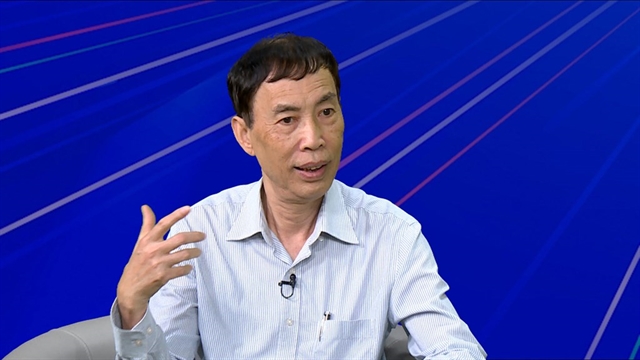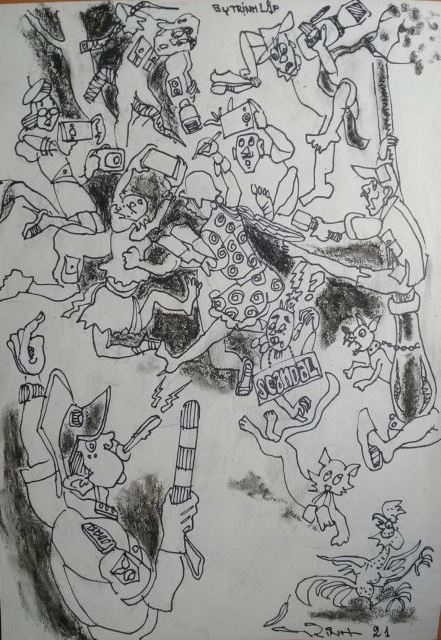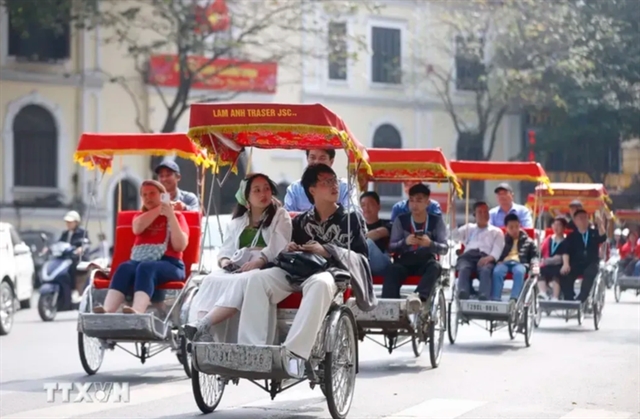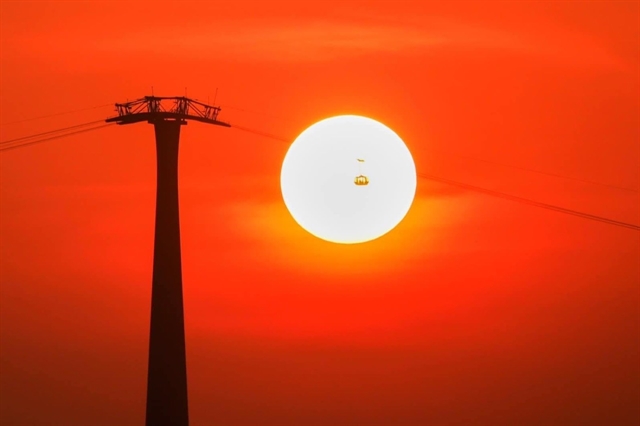 Society
Society

Next week will mark the 30th anniversary of this newspaper, the Việt Nam News, born out of the need to inform the locally stationed press and foreign corps on what's going on locally on a daily basis in 1991, shortly before the end of the Cold War.

|
By Nguyễn Mỹ Hà
Next week will mark the 30th anniversary of this newspaper, the Việt Nam News, born out of the need to inform the Hà Nội-based press and diplomatic corps on what's going on locally on a daily basis in 1991, shortly before the end of the Cold War.
Reporting and writing in the journalistic style of the English-speaking world were uncommon here at the time. The newspaper's front pages often featured diplomatic visits and government activities.
Volunteers from Australia and the UK arrived in the newsroom and edited the translated news and features from Vietnamese reporters and trained the staff to write more objectively, get the numbers right, get quotes correct and last, but not least, give the story a flow for readers to follow.
Over time, the traditional style of journalism in Việt Nam, which is more educational than reporting the news, more telling readers what to do more than showing what happened, gave way to a different way of practising this craft from the English-speaking media.
But the western way also came with negative sides, like looking out for scandals, making an otherwise dull story sensational.
In a world where everyone with a digital camera can be a reporter with a picture or a post on social media, media outlets must work much harder to compete.
Our staff read wire stories from AFP, AP and Reuters every day to improve our English and writing skills. The BBC was also a source for our reference not only for its use of British English but also for how it conducted journalism.
Vietnamese folks who read English tend to look for original stories on the English website, which are more balanced than the BBC Tiếng Việt, or in Vietnamese.
The English version's reputation did take a hit recently though when an independent inquiry determined that Martin Bashir faked documents to win an interview with Princess Diana.
I remember working on the international news desk when the story about Diana's car crash and the aftermath unfolded. The most painful thing to see was to see young Prince Harry put a card on the coffin that said "Mummy"!
I believe that image left a lasting sad memory not only in me but in millions of other people around the world.
Both the princes, now adults and parents, have denounced the malpractice of the reporter and called for the tapes of the interview to be scrubbed from social media. They regretted the outpouring their mother made about her failed marriage with their father, and above all, their stolen childhood for losing her tragically too soon.
This scandal not only showed Diana was betrayed by the press, who were supposed to give her side of the truth but faked it from the very beginning. The results of the interview, the press prize and the reporter's career, are all now up in flames.
There is an ethical question that is often debated in journalism: Would you hide in a bush to get the news?
Those who say yes see it as just another challenge for reporters to prove they are capable of getting that piece of information, or that picture to catch a public figure red-handed. They don't see any problem of not just hiding in the bush, but ambushing anyone else to get the story.
Those who say they wouldn't hide in a bush believe that there are other, more subtle undercurrents of truth that can be revealed in other ways, such as digging up old court documents, reading declassified government papers or talking to forgotten people to write their stories and get closer to the truth.
Both practices will always co-exist. Because if you feel you're too dignified to hide in a bush stalking people to fish for a dead rat, there will always be someone willing to step in and take the story from you.
Sometimes, it's not that they want to kick you out of a job, but they just need the paycheque to keep going.
It's never easy to criticise the malpractice of a distant colleague because it seems to be cruel to do that.
But the reporter who faked the document, and the management board that drove him to do that, backed him in the aftermath and covered up the incident, which found Bashir "honest and honourable" didn't find it cruel to use Diana and roast her for the whole world to witness.
The interview of the century turned out to be the scandal of the century. Ostensibly, as a reporter, you're supposed to get your subject's authentic voice, opinion and expressions. But under such pressure and circumstances, such an interview could be totally groundless and useless.
How do you know what is true? This is a vital question every reporter should ask when writing a story or gathering information.
What you know is true today, may turn out to be not so true the next day. Like the news Việt Nam had found what could be a new COVID-19 variant in my Talk column last week when health authorities announced the discovery.
But soon after, the World Health Organization announced the so-called new variant was nothing more than part of the already in circulation strain that was first detected in India.
Greek names have been given to the variants, the Alpha, or B.1.1.7 for the one that was found in the UK, and the Delta, or B1.617.2, found in India in December 2020.
Both of these variants have been found in Việt Nam, but they didn't form a new variant with crossover mutation, which is essential for defining a new variant.
My apologies for the mistake. I should have checked sooner.
To survive in this demanding craft, you need not only a warm heart with empathy, but you also need a logical, reasonable, rational, calm, and thoughtful head, so as to keep reporting only the truth, nothing but the truth, most of the time devastating, but not buffed or faked to be the truth.
And always ask "how do I know if this is true?" VNS




